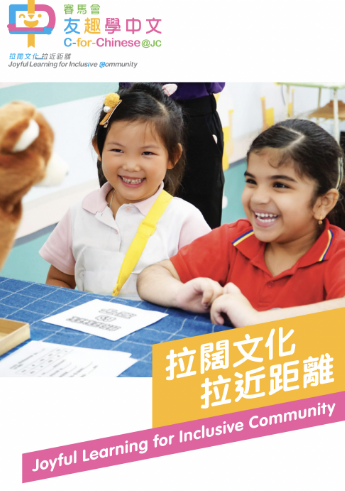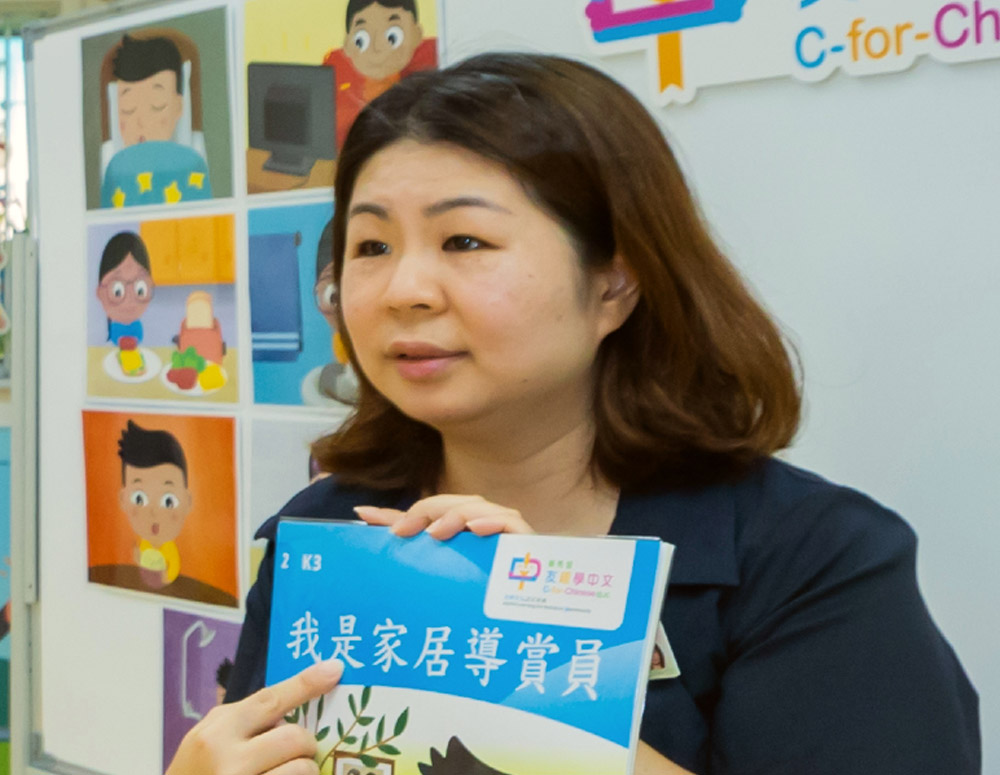C-for-Chinese@JC
C-for-Chinese@JC
"C-for-Chinese@JC" project is created and funded by The Hong Kong Jockey Club Charities Trust, and co-created by three local universities and two non-governmental organisations. Since its launch in 2016, the Project has adopted a "home-school-community" collaborative and evidence based model to foster and create culturally responsive education for kindergartens, pleasurable and meaningful learning environment in improving the non-Chinese speaking (NCS) ethnic minority (EM) students for Chinese proficiency and Chinese students for social competence.
Building on past learnings, Phase II of the Project bids to support kindergarten with a set of "Culturally Responsive Education Benchmarks". This practical framework aims to enhance the Chinese learning and social-emotional competence of both NCS, EM and Chinese students; as well as their transitions to primary education. By 2026, the Project targets to support 42,000 kindergarten students, including 5,100 NCS, EM students and their families.
C-for-Chinese@JC Project Video
Project Background
Many people from diverse cultural backgrounds have been living in Hong Kong for two or three generations. Their population has been increasing rapidly. The "Hong Kong Poverty Situation Report on Ethnic Minorities 2014" states that the average annual growth rate for ethnic minorities was 2.7% from 2001 to 2011—much higher than 0.5% for the whole population. For South Asians particularly, the average annual growth rate was 4.1%, the highest among all culturally diverse groups. According to the 2016 Population By-census, the population of non-Chinese in Hong Kong is 584,383, accounting 8% of the total population.
As their population grows, the empowerment and integration of these culturally diverse communities has become a greater concern for society. Many members of culturally diverse communities find Chinese a barrier to their integration, academic and career advancements. These communities need support in Chinese learning, as early as in the kindergarten stage. To learn a second language effectively, students should be provided with a structured environment, interactive out-of-class learning and committed parental support. And these are often lacking in culturally diverse families. Given the importance of Chinese proficiency for children's future, it is crucial to provide support at an early stage, so that they can develop fundamental Chinese language ability in time.
Project Beneficiaries (2022-2026)

Kindergarten
Students

Ethnic Minorities Students

Schools



